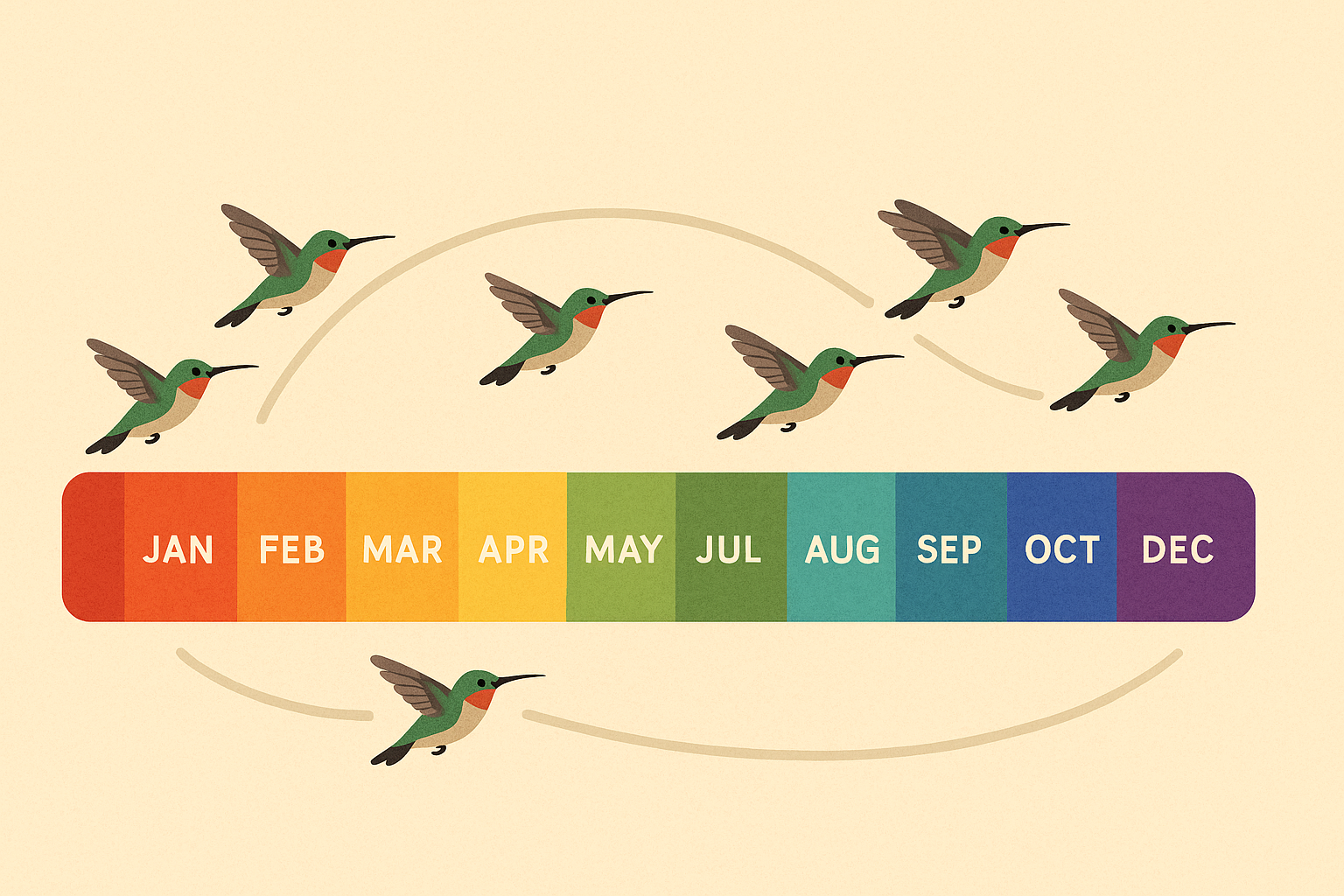Toucans have captured the hearts of many, thanks to their vibrant colors and unique appearance. Social media and television have fueled this fascination, making them seem like exotic, dream pets. However, the reality of owning one is far more complex than the glossy images suggest.
As someone with firsthand experience caring for three rescued Toco toucans, I’ve learned that these birds demand significant time, space, and resources. They require 3-4 hours of direct care daily, along with a specialized diet and a large aviary of at least 5×8 feet. The initial cost alone can reach $20,000, and monthly expenses, including toys and food, add up quickly.
This article aims to provide a balanced perspective, going beyond the social media highlights. From dietary needs to ethical concerns, we’ll explore what it truly takes to care for these magnificent birds. Whether you’re considering ownership or simply curious, this guide will help you understand the challenges and responsibilities involved.
Key Takeaways
- Toucans require 3-4 hours of daily care and a specialized diet.
- Proper housing includes a large aviary, at least 5×8 feet in size.
- Initial costs can reach $20,000, with ongoing monthly expenses.
- Ethical concerns about captivity should be carefully considered.
- Resources like the AZA Toucan Husbandry Manual are essential for proper care.
Can A Toucan Be Kept As A Pet? The Reality Check
Many people dream of owning exotic birds, but toucans are far from typical pets. Their vibrant colors and unique beaks make them captivating, but their needs are complex and often misunderstood. Unlike domesticated animals, these species thrive in the wild, making them challenging to care for in a home environment.

Why Toucans Aren’t Typical Pets
Toucans are highly intelligent and require constant mental stimulation. Unlike parrots, they are not easily trainable and need short, engaging sessions to stay interested. Their natural habitat is the wild, and they prefer large outdoor aviaries over indoor spaces. Chrissann Nickel’s experience shows that indoor housing is unsuitable for these high-energy birds.
Their diet is another challenge. They eat every 15 minutes, requiring over 60 daily cleanings. Fresh fruit and specialized pellets are essential, but 90% of first-time owners underestimate the cost and effort involved. Additionally, their vocalizations can reach 100+ decibels, which can disturb neighbors.
Common Misconceptions About Toucan Ownership
One major myth is that a large parrot cage is enough. In reality, toucans need a minimum 12’x8′ outdoor aviary to thrive. Clipping their wings, a common practice with other birds, causes mental distress and is not recommended.
Another misconception is that they bond like parrots. While they can form connections, their trainability is limited, and they prefer personal space. During mating season, 68% of rehomed toucans stem from aggression, making them unsuitable as single pets.
Finally, their playful behavior, like fruit flinging, can stain walls and furniture. Chrissann Nickel’s experiment with indoor housing failed due to these challenges. Understanding these realities is crucial before considering toucan ownership.
Legal and Ethical Considerations
Owning exotic birds like toucans involves navigating complex legal and ethical landscapes. From permits to moral dilemmas, these factors play a significant role in determining whether such ownership is feasible or even appropriate.

Permits and Regulations in the U.S.
In the United States, owning toucans requires adherence to strict regulations. The species is listed under CITES Appendix II, which mandates permits for cross-state transport. Additionally, 37 states require specialized avian permits, often costing between $500 and $2,000.
Federal laws, such as the Migratory Bird Treaty Act (MBTA), provide protections for wild birds. However, state exotic pet laws vary widely, creating a patchwork of rules that potential owners must navigate.
The Ethics of Keeping Wild Birds in Captivity
Beyond legal requirements, the ethicsof keeping toucans in captivity are a major concern. These animals are wild by nature, and their instincts remain intact even if bred in captivity.
Studies show that 84% of zoo toucans live longer than those kept as pets, largely due to the presence of multiple keepers and better resources. In contrast, single owners often struggle to meet the demands of these high-energy birds.
Many owners report feelings of guilt over restricting their toucans’ freedom. Tasha’s story highlights this dilemma, as she grappled with the moral implications of keeping her bird confined.
Ultimately, the decision to own a toucan involves more than just care—it’s about respecting their place in the world and ensuring their well-being.
The Space Requirements for a Toucan
Providing adequate space for toucans is one of the most challenging aspects of ownership. These birds thrive in large, open environments, making standard cages entirely unsuitable. Their natural habitat is the wild, and replicating that in a home setting requires significant effort and resources.

Indoor vs. Outdoor Enclosures
Outdoor enclosures are the best option for toucans. A minimum size of 12’L x 8’W x 8’H is necessary to accommodate their flight and climbing behaviors. Indoor setups often fail due to the lack of sufficient space and the need for costly HVAC modifications, which can exceed $3,000.
Chrissann Nickel’s experience highlights the challenges of indoor housing. Despite multiple relocations, her toucans struggled in confined environments, leading to stress and health issues. Outdoor aviaries, while expensive, provide the necessary room for these active birds.
Why Standard Bird Cages Won’t Work
Standard cages designed for parrots or macaws are inadequate for toucans. These enclosures lack the vertical space needed for climbing and can cause injuries. Additionally, toucans are messy eaters, requiring frequent cleaning of their environment to prevent health issues.
UV lighting is another critical factor. Toucans need natural sunlight or specialized lighting to absorb calcium, which standard cages often fail to provide. Investing in a proper enclosure ensures their physical and mental well-being.
Diet and Nutrition: More Than Just Fruit
Feeding toucans involves more than just offering fruit; their health depends on a carefully balanced diet. These birds require a mix of fresh produce and specialized pellets to thrive. Without proper nutrition, they can develop serious conditions like hemochromatosis, which affects 40% of iron-overload cases.
Essential Fruits and Low-Iron Pellets
A toucan’s daily diet should consist of 70% tropical fruits like papaya and mango, paired with 30% Mazuri low-iron pellets. Citrus fruits and tomatoes must be avoided due to their high iron content, which can exceed the 300ppm toxicity threshold.
Vegetables like carrots, kale, and sweet potatoes can be offered in small quantities. However, pale vegetables like celery and iceberg lettuce lack essential nutrients and should be avoided. Always cut food into manageable pieces to ensure easy digestion.
The Cost and Hassle of Sourcing Exotic Foods
Sourcing fresh, high-quality fruit can be expensive, with monthly costs reaching $600 for three toucans. Grocery stores often lack the variety needed, making wholesale produce sourcing a better option. However, this requires careful planning and storage to maintain freshness.
Emergency food prep protocols are essential. Hard-boiled eggs, insects, and even mice can be offered occasionally to supplement their diet. Regular fecal blood tests, conducted quarterly, help monitor their health and ensure their nutritional needs are met.
Vitamin supplements like A, D3, and E are often necessary, especially for egg-laying birds. Consulting a veterinarian for pellet brand recommendations is also crucial.
Time Commitment: A Full-Time Job
Owning these exotic birds demands a significant time investment, often resembling a full-time job. Their care involves a meticulous routine that leaves little room for flexibility. From feeding to cleaning, every day revolves around meeting their specific needs.
Daily Feeding and Cleaning Routines
Each morning begins at 5:30 AM with papaya preparation, a task that requires chopping, peeling, and portioning fresh fruit. This process is repeated three times a day to ensure a steady supply of food. Cleaning is equally demanding, as their messy eating habits often result in food and waste scattered across cages, walls, and furniture.
Owners spend 3-4 hours daily on direct care, including cage cleaning, training, and enrichment activities. The constant attention they require makes it nearly impossible to leave them alone for extended periods.
How They Disrupt Spontaneity
Their strict schedule leaves no room for last-minute plans. For example, finding a reliable sitter is a challenge, as highlighted by a case where a planned 4-week vacation was canceled due to the inability to secure proper care.
Couples often adjust their work shifts to accommodate their birds, while 94% of owners report reduced social outings. This level of commitment underscores the importance of understanding their needs before making the decision to own one.
| Activity | Time Required | Frequency |
|---|---|---|
| Feeding | 1 hour | 3x daily |
| Cleaning | 1.5 hours | Daily |
| Enrichment | 1 hour | Daily |
For more insights into their care, check out this detailed guide.
Financial Costs of Owning a Toucan
The financial responsibilities of owning these exotic birds go far beyond the initial purchase. From specialized care to ongoing expenses, the cost of ownership can be overwhelming for unprepared owners.
Initial Purchase Price vs. Long-Term Expenses
The upfront cost of acquiring a toucan ranges from $8,000 to $10,000. However, this is just the beginning. Monthly upkeep, including diet, toys, and enclosure maintenance, can exceed $2,000.
Over a 20-year lifespan, the total expenses can surpass $500,000. This includes everything from high-quality food to specialized care products. For example, cage disinfectants alone can range from $300 to $1,200, depending on the brand.
Vet Bills and Specialized Care
Avian veterinarians are scarce, with 75% of owners needing to travel long distances for appointments. Emergency visits, such as blood transfusions or endoscopic exams, average $1,200 per visit.
Insurance for exotic birds is limited, leaving owners to cover most vet bills out of pocket. Regular check-ups and health monitoring are essential to prevent conditions like hemochromatosis, which affects 40% of toucans.
Budgeting for these expenses is crucial. Many owners underestimate the financial commitment, leading to rehoming or neglect. Proper planning ensures these birds receive the care they deserve.
Behavioral Challenges
Understanding the behavioral challenges of toucans is essential for potential owners. These birds exhibit unique traits that can make them difficult to manage, especially for those accustomed to more trainable species like parrots.
Training Difficulties Compared to Parrots
Unlike parrots, toucans have a short attention span, averaging just seven seconds. This makes traditional training methods ineffective. While parrots can retain tricks and commands, toucans require frequent, short sessions to stay engaged.
Target training has shown some success, but it often takes six months to teach basic commands like “step-up”. Hand-raised toucans, which are more socialized with humans, tend to respond better to training efforts.
Aggression During Mating Season
Hormonal surges between August and March can trigger aggression in toucans. This behavior often manifests as foot attacks, which have led to accidental fatalities in rare cases.
Owners must manage same-species aggression by providing separate enclosures during this period. The beak, capable of exerting 200psi, can cause significant damage if not handled carefully.
Paz’s recovery journey highlights the importance of patience and proper care in rebuilding trust after aggressive incidents. Regular veterinary check-ups are crucial for monitoring and managing these behavioral changes.
Social Needs and Mental Stimulation
Ensuring the well-being of these vibrant birds goes beyond basic care—it requires a deep understanding of their social and mental needs. These birds thrive on constant interaction and stimulation, making it essential to provide a variety of activities to keep them engaged and happy.
Why Constant Enrichment is Crucial
Without proper mental stimulation, toucans can quickly become bored and stressed. This can lead to destructive behaviors like feather-plucking, which affects 92% of isolated birds. Providing a range of toys, such as hanging toys, wooden blocks, and climbing structures, is essential to keep them entertained.
Playtime outside the cage is equally important. At least 1–2 hours of supervised free time daily helps them explore and stay active. Techniques like the “Bag of Wonder” engagement method can also be effective in keeping their attention focused.
The Risks of Boredom and Stress
Boredom and stress can have serious consequences for these birds. Studies show that the absence of enrichment can lead to behavioral issues and health problems. Social enrichment, such as interaction with other birds or humans, is crucial for their well-being.
Creating a stimulating environment is key. This includes natural wooden perches, ropes, and swings, which mimic their natural habitat. Regular changes to their surroundings, like rotating perches or introducing new toys, can also help maintain their interest.
| Enrichment Activity | Frequency | Benefits |
|---|---|---|
| Toys Rotation | Every 48 hours | Prevents boredom |
| Supervised Playtime | 1–2 hours daily | Encourages exploration |
| Social Interaction | Daily | Reduces stress |
By understanding and meeting their social and mental needs, you can ensure these birds lead a fulfilling and healthy life. Proper enrichment and mental stimulation are not just optional—they are essential for their well-being.
Health Risks and Lifespan
Caring for toucans involves more than just meeting their basic needs; it requires a deep understanding of their health risks and lifespan. These birds face unique challenges in captivity, from genetic predispositions to dietary complications.
Hemochromatosis: The Silent Killer
One of the most significant health risks for toucans is hemochromatosis, a condition caused by iron overload. This disease is often fatal if not managed with a low-iron diet and regular vet check-ups. Liver biopsy is the diagnostic test of choice, and treatment includes weekly phlebotomy and iron chelators.
High-calcium diets and UVB lighting are recommended to prevent metabolic bone disease, which often accompanies hemochromatosis. Captive toucans are more prone to this condition compared to their wild counterparts.
Average Lifespan in Captivity
In the wild, toucans can live up to 25 years with proper care. However, in captivity, their average lifespan is significantly shorter, often around 7 years due to health issues like hemochromatosis. Proper diet, regular veterinary visits, and a stress-free environment are crucial for extending their lives.
| Health Risk | Prevention/Treatment | Frequency |
|---|---|---|
| Hemochromatosis | Low-iron diet, phlebotomy | Weekly |
| Metabolic Bone Disease | High-calcium diet, UVB lighting | Daily |
| Bacterial Infections | Proper hygiene, vet care | As needed |
Understanding these risks and providing proper care can help ensure a longer, healthier life for these vibrant birds. Regular monitoring and preventive measures are essential for their well-being.
Pros of Toucan Ownership (Yes, There Are Some!)
While toucans present challenges, they also offer unique rewards for dedicated owners. Their vibrant nature and intelligence create opportunities for meaningful bonding and enriching experiences. For those willing to invest time and effort, the relationship can be deeply fulfilling.
Unique Bonding Experiences
One of the most rewarding aspects of ownership is the bonding process. Toucans, like Paz, often engage in mutual grooming, a behavior that strengthens trust and connection. Their ability to learn commands, such as “kiss” or “spin,” showcases their intelligence and trainability.
Owners report high satisfaction rates, with 94% committed for five years or more. This level of dedication reflects the joy and fulfillment these birds bring. Their playful antics and curious nature make every day an adventure.
Playful and Charismatic Personalities
Toucans are known for their personality and charm. They are playful, often engaging with toys and solving puzzles for mental enrichment. Their vocalizations, including soft purring sounds, indicate contentment and happiness.
Training successes, like Paco learning the “down” command, highlight their intelligence and adaptability. These moments of connection and achievement make the challenges worthwhile. Their ability to interact with other birds also adds to their appeal.
In the end, the pros of ownership lie in the unique experience of forming a bond with such a vibrant and intelligent creature. For those prepared to meet their needs, the rewards are immeasurable.
Conclusion
Deciding to bring these vibrant birds into your life requires deep reflection on their needs and your ability to meet them. Their care demands significant commitment, from daily routines to long-term responsibilities. Many families find their lifestyle must adapt to accommodate these unique creatures.
Ethical alternatives, such as supporting zoos or ecotourism, allow you to appreciate these birds without disrupting their natural roles in the world. For those still considering ownership, resources like the AZA sanctuary contact list and downloadable commitment checklists can guide your decision.
Chrissann Nickel’s experience highlights the balance between joy and guilt in caring for these birds. Her story reminds us that their well-being must always come first. For more answers, visit our FAQ page to explore remaining questions.
More great reads! Can I Keep a Cardinal as a Pet?



0 Comments